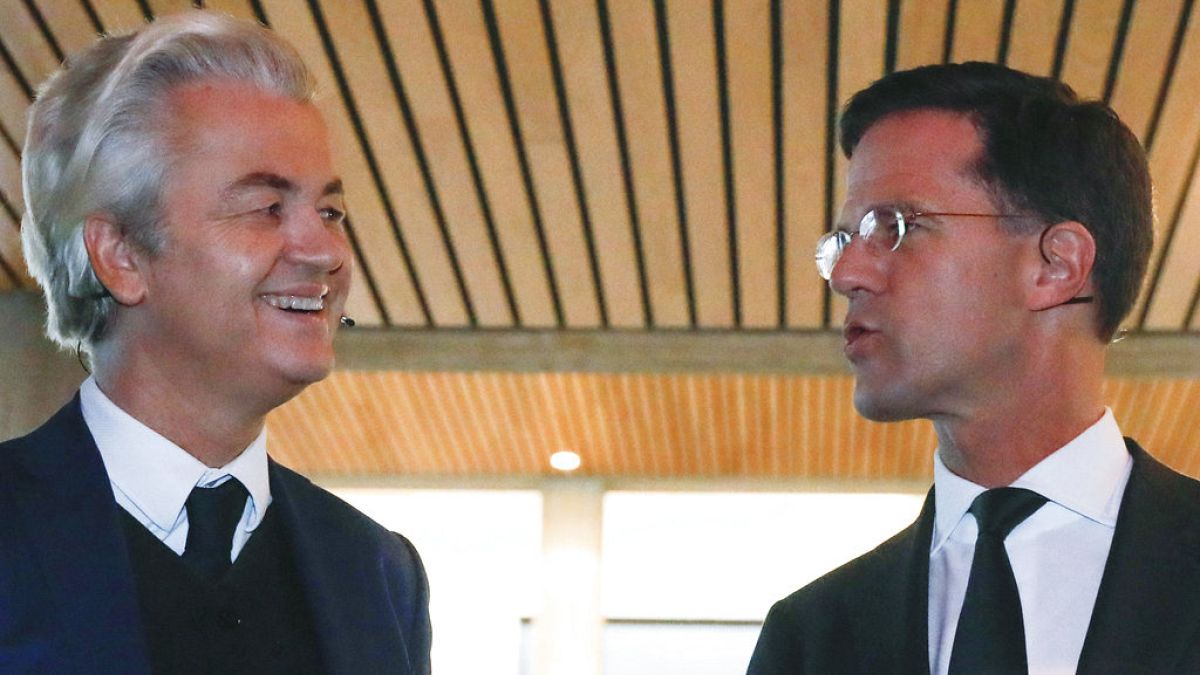
An abrupt shift to the political right is likely to mean the next head of the EU commission will be a Conservative – but the right-wing camp is affected by many political rifts, some, almost insurmountable.
AT FIRST GLANCE:
Conservative forces are set to win the European elections, the latest Euronews Super Poll, from the Euronews Polls Centre, can exclusively reveal.
Parties from the centre-right, ultraconservative and far-right are leading the polls in the main EU countries.
Meanwhile, liberal-democrats are likely to face a painful defeat, as the centre-left settles into a fragile stability with moderate losses and timid gains, depending on the country.
The main consequence of the election could be the appointment of a new conservative head of the EU Commission. A harsh struggle between already established and new parliamentary groups and the alliances over who will run EU affairs over the next five years is also likely to ensue.
DIGGING DEEPER
The European People’s Party (EPP) is set to confirm its relative majority at the European parliament.
However, far-right and ultra-conservative forces are also set to win big, the Euronews poll suggests: in France, Identity and Democracy (ID) member Marine Le Pen and her Rassemblement National party. In Italy, European Conservatives and Reformists (ECR) Prime Minister Giorgia Meloni and her Fratelli d’Italia (FdI) party are on the road to victory. While in the Netherlands, ID member Geert Wilder’s Party for Freedom (PVV), and in Romania’s Adela Mirza and her Right Alternative (AD) are frontrunners.
Some EPP affiliates have been leading the polls since March in Germany, with Friedriech Merz’s CDU-CSU, Poland’s Prime Minister Donald Tusk’s Civic Platform (PO) and Alberto Núñez Feijóo’s People’s Party (PP) in Spain. Both Germany’s CDU-CSU and Spain’s PP sit as opposition parties, while Tusk’s PO is the ruling party in Poland.
The Socialists and the Democrats (S&D) group is to contend for second place with far right and national conservatives.
Two significant countries with socialist prime ministers still in power are Olaf Scholz and Pedro Sánchez, from Germany and Spain respectively.
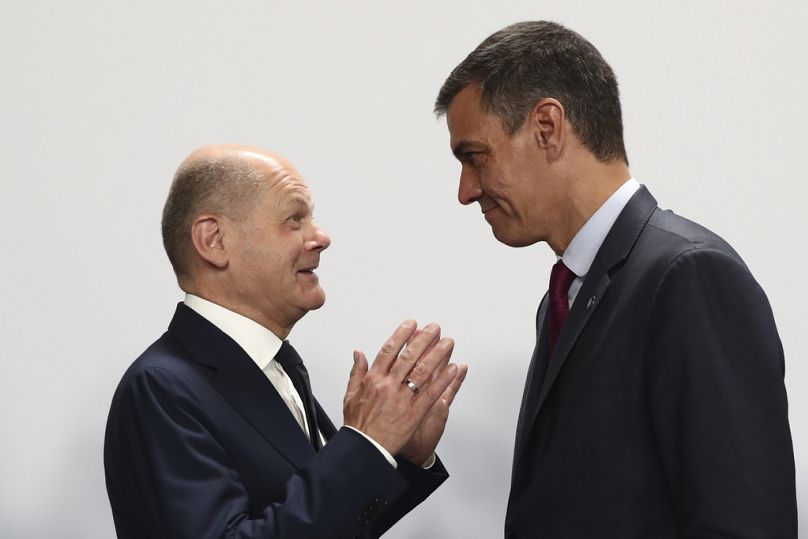
Chancellor Scholz’ Social Democratic Party (SPD) is in third position, one seat behind the far-right Alternative for Germany (AfD).
According to the polls, liberal-democrats Renew are bound to suffer heavy voter losses across Europe. France, which used to be a stronghold for the party, will become a battleground. President Macron’s Renaissance party belongs to Renew.
Renew President Valérie Hayer will expel Dutch liberals from the People’s Party for Freedom and Democracy (VVD), the party of former Dutch Premier Mark Rutte, after they agreed to a four-way coalition with Wilders’ PVV in the Netherlands last week.
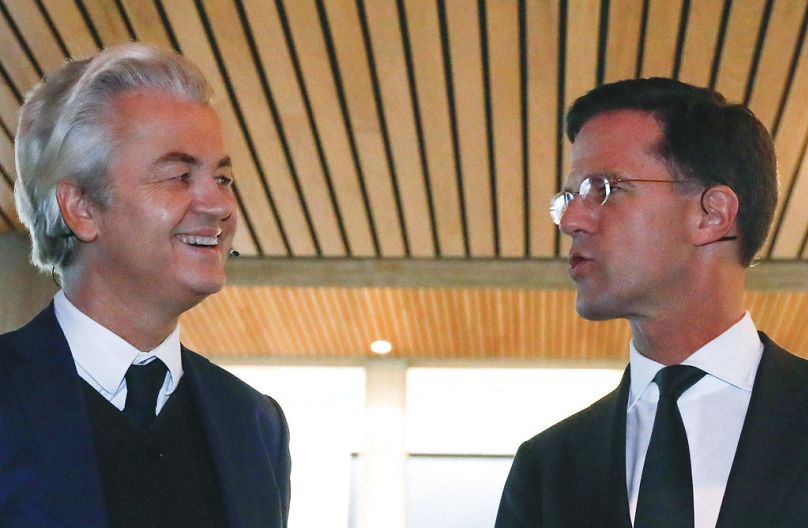
Far-right Italian Prime Minister Giorgia Meloni and her party FdI is one of the largest members of the nationalist-conservative ECR, along with Poland’s Law and Justice (PiS) party, and Spain’s Vox.
The ECR was created in early 2009 when the British Conservatives left the EPP and joined other European political movements with similar political values. Anti-European federalism, conservative social policies and criticism of Franco-German EU leadership became its trademarks.
The British Conservatives left the ECR after Brexit.
ECR party members are stuck between preserving traditional conservatives values, and far-right stances. Far-right groups ECR and ID share strong anti-migration and populist rhetorics.
After last week’s far-right gathering in Madrid, Meloni and Le Pen have hinted at some sort of reconciliation after years of competition between them. It could be an attempt to find common ground with a view to collaborate in post-EU election talks.
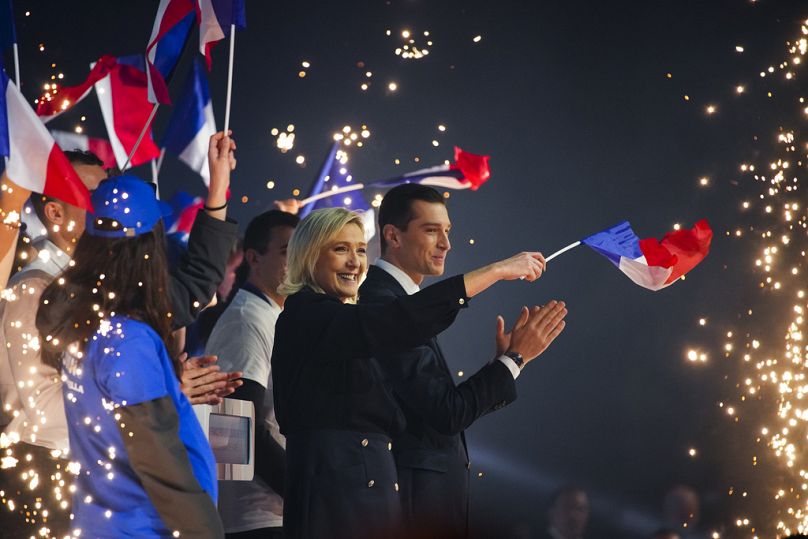
With the results Meloni and Le Pen’s parties are expected to obtain, both leaders have the rare opportunity to critically influence EU policy making over the next five years.
On Tuesday, the relationship between Le Pen and AfD became strained after the party’s head of the electoral list Maximilian Krah, said in an interview with Italian daily La Repubblica “never say that anyone who wore an SS uniform was automatically a criminal”.
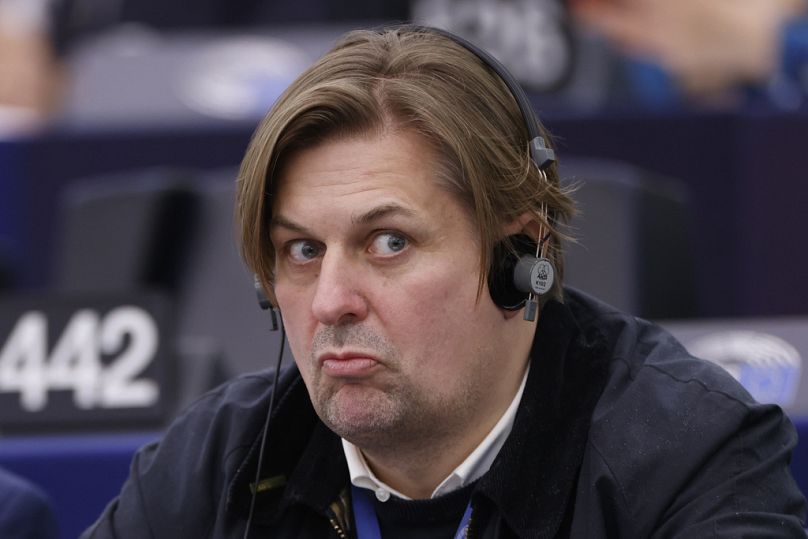
QUESTIONS REMAIN
The Conservative camp is highly divided. Many EPP members are either Federalists or strongly pro-European. But this is not the case for the majority of ECR and ID members.
A centre-right plus right coalition could derail before it has even begun, on the basis of different European principles, or, political strategies such as the EU droit de regard on the rule of law in every member state, the creation of enhanced EU Defence structures, and the Green economy investments.
Voting figures suggest a conservative majority, which would mean conservative parties could have a say on the appointment of the president of the commission.
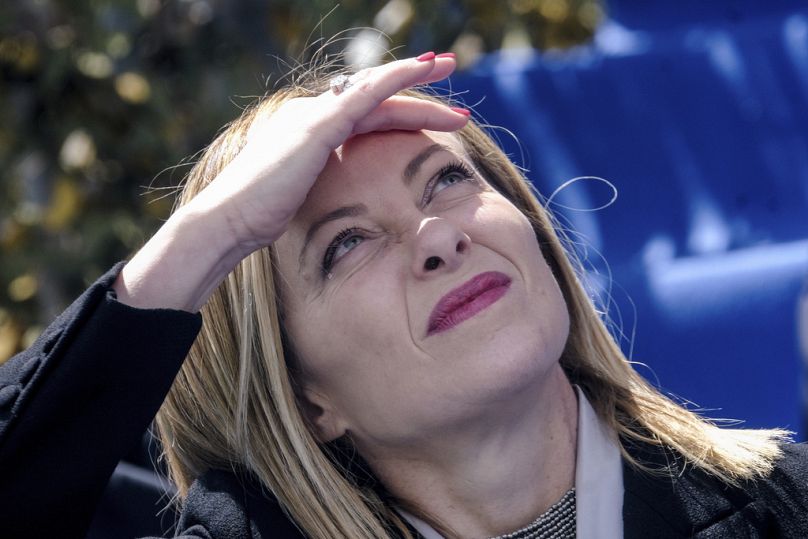
Nevertheless, national governments are legally mandated to decide who will run the EU Commission. France, Germany and Spain have liberal and social democratic governments. Thus the appointment of an EU Commission president simply based on the results of the EU elections and without the active participation of Emmanuel Macron would be unrealistic.
Similarly, a reboot of a grand coalition between the EPP, Renew and S&D would be at odds with the will of EU voters.
Even a coalition between the EPP, ECR, and Renew doesn’t seem achievavle. French President Emmanuel Macron, Renew’s biggest sponsor, would have difficulty finding common ground with the ECR, and vice versa.
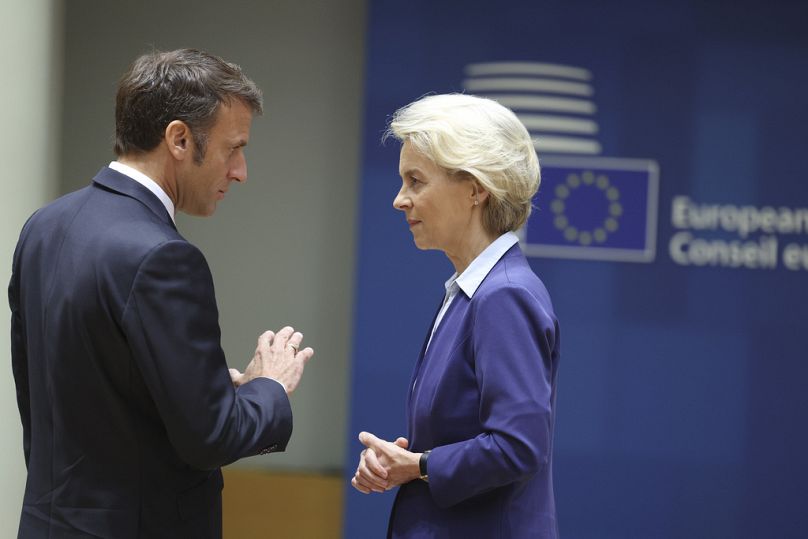
WHAT THE POLLS SAY
“Emmanuel Macron will push for the traditional majority, EPP, S&D and Renew. It is still justified by the figures we see in our forecasts” says Francesco Sismondini, from the Euronews Polls Centre.
Ultra-conservatives are trying to avoid this outcome by reestablishing good relations amongst each other, as seen in Madrid’s far-right Vox conference last week.
“Leaders of both ECR and far right groups like Giorgia Meloni and Marine Le Pen can try to find common ground,” explains Sismondini. “And in order to reach it they must take some difficult decisions, like breaking with the AfD for Marine Le Pen and becoming moderate on issues such as migration, social questions and supporting Ukraine.”
But the playing field is still wide open. It’s not only a matter of voting figures – politics still needs to have its say, says. Sismondini: “As soon as the negotiations start after the elections, we will see that the political groups at the EU parliament are not that attached [to each other]”.
However, the far-right victory in some important countries will inevitably influence the appointments of EU’s top-level jobs, such as President of the Commission, President of the EU Council and the High Representative of EU foreign and security policy.
“We can foresee an effort by the right and far-right political groups to get some support from the traditional far-right voters,” says Sismondini. Some efforts are extremely clear. “The Rassemblement National’s are very strong. Macron’s party in France comes second, but with a gap of 16% with the Rassemblement National.”





